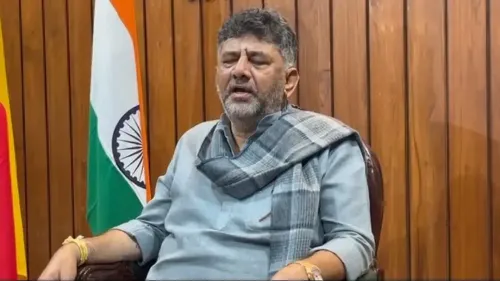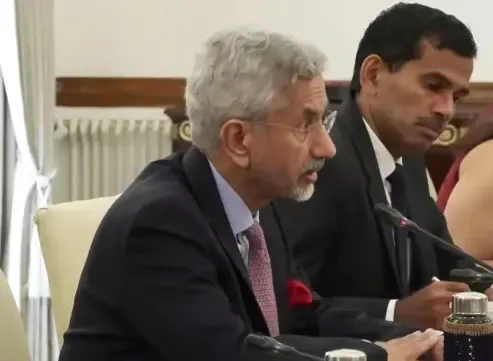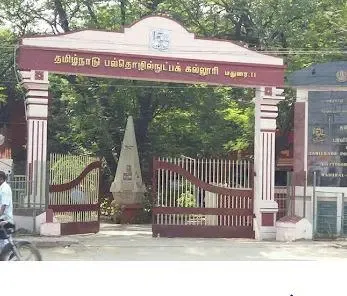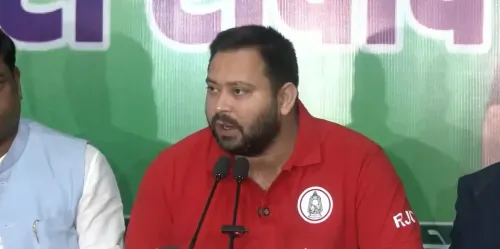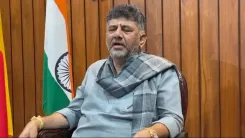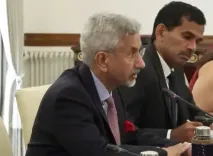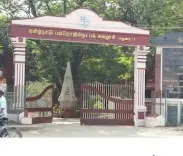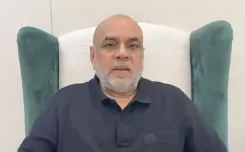India Breaks Free from Colonial Roots with New Criminal Laws: PM Modi
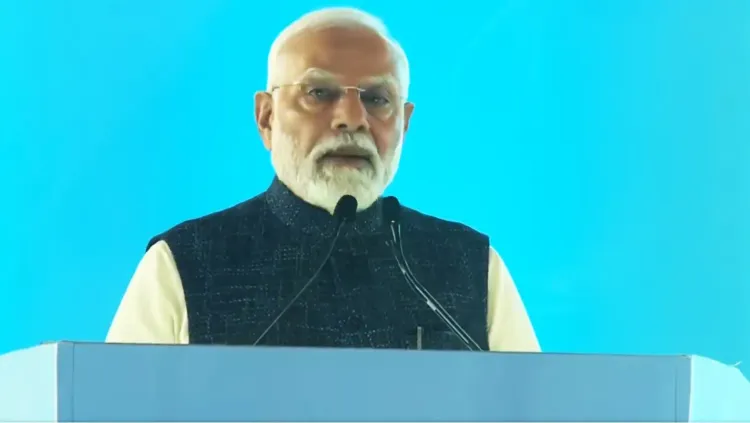
Chandigarh, Dec 3 (NationPress) Prime Minister Narendra Modi stated on Tuesday that the introduction of three new criminal laws has effectively liberated India from its colonial past, as these laws are a significant advancement toward achieving the ideals envisioned by the Constitution for the nation.
During an event held in Chandigarh, the shared capital of Punjab and Haryana, PM Modi remarked, "These new criminal laws are a decisive step towards realizing the principles that our Constitution has envisioned for the citizens of our nation... Over the past seven decades since our Independence, we have closely examined the challenges confronting our judicial system. We have reviewed the behavioral aspects of all laws and I extend my gratitude to the Supreme Court, judges, High Courts, particularly in Punjab and Haryana, and the Bar association for their commitment to the Nyay Sanhita."
He noted that for decades post-Independence, the laws persisted within a similar penal framework. Although there were attempts to implement minor changes, the fundamental nature of these laws remained unchanged.
PM Modi emphasized, "As our country progresses with the resolve towards a united India, the implementation of Indian justice, inspired by the Constitution's spirit, marks an important new chapter as we celebrate 75 years of our Constitution."
Previously, PM Modi, accompanied by Union Home Minister Amit Shah and Punjab Governor and Chandigarh Administrator Gulab Chand Kataria, visited an exhibition showcasing the rollout of the three criminal laws at the campus of Punjab Engineering College.
During this visit, PM Modi was informed by Senior Superintendent of Police (SSP) Kanwardeep Kaur about the implementation of these transformative new criminal laws in Chandigarh, highlighting over 900 first information reports (FIRs) registered and four convictions achieved in the past five months.
These laws are designed to reform India’s criminal justice system, emphasizing transparency, efficiency, and addressing contemporary challenges.
PM Modi also reviewed the exhibition where a simulated crime scene investigation was set up on the campus of Punjab Engineering College, featuring a mock police station.
The presentation, themed “Secure Society, Developed India: From Punishment to Justice”, was organized across eight stations, offering PM Modi a comprehensive view of how law enforcement, forensic teams, judicial authorities, and correctional facilities have become more effective and technology-oriented since the introduction of these laws.
A crime scene was showcased with a distress call received at the Police Control Room. At this location, the e-Sakshya app was utilized to document all evidence digitally, including photos, videos, and timestamps, which are subsequently sent directly to the court. In this scenario, the forensic team gathered vital evidence, while a simulated “family member of the victim” identified the body.
Home Minister Shah was also seen explaining to PM Modi the operational aspects of the new laws aimed at ensuring rapid justice, from evidence collection at the crime scene to offering support to the victim’s family.
During the event, Home Minister Shah stated, "In the new laws, treason (deshdroh) has replaced sedition (rajdroh), a term used for centuries."
He added that previous laws were established in the British Parliament, primarily to safeguard British interests rather than those of the Indian populace. "The laws introduced by PM Modi are crafted by Indians, within the Indian Parliament, to provide justice to the people... These laws prioritize justice over punishment. They will be implemented nationwide within three years," he stated.
He affirmed that PM Modi has initiated the creation of the world’s most advanced criminal justice system to foster a secure and developed Bharat for all.
Chandigarh has become the first city in India to achieve 100 percent implementation of all three new laws.
The three new criminal laws—the Bharatiya Nyaya Sanhita, Bharatiya Nagarik Suraksha Sanhita, and Bharatiya Sakshya Adhiniyam—have replaced the outdated British-era laws, including the Indian Penal Code, Code of Criminal Procedure, and Indian Evidence Act, and came into force on July 1.
These groundbreaking reforms signify a historic transformation of the criminal justice system, introducing new frameworks to address modern-day issues such as cybercrime and organized crime while ensuring justice for victims of various offenses.
The local police also demonstrated the features of applications like e-Sakshya, Nyay Setu, Nyay Shruti, and e-summons, developed in collaboration with the National Informatics Centre and the National Crime Records Bureau.
Before arriving in Chandigarh, PM Modi commented on X, "Today marks a special milestone in our quest to provide swift justice for every Indian and simultaneously liberate ourselves from colonial mindsets... I will participate in the program in Chandigarh to celebrate the successful implementation of the three new criminal laws... It brings me immense joy that these laws are being enacted at a time when we commemorate 75 years of our Constitution, which was adopted by the Constituent Assembly."
The vision behind these three laws was inspired by PM Modi’s commitment to eliminate colonial-era regulations that have persisted since Independence and to transform the judicial system by shifting focus from punishment to justice.

